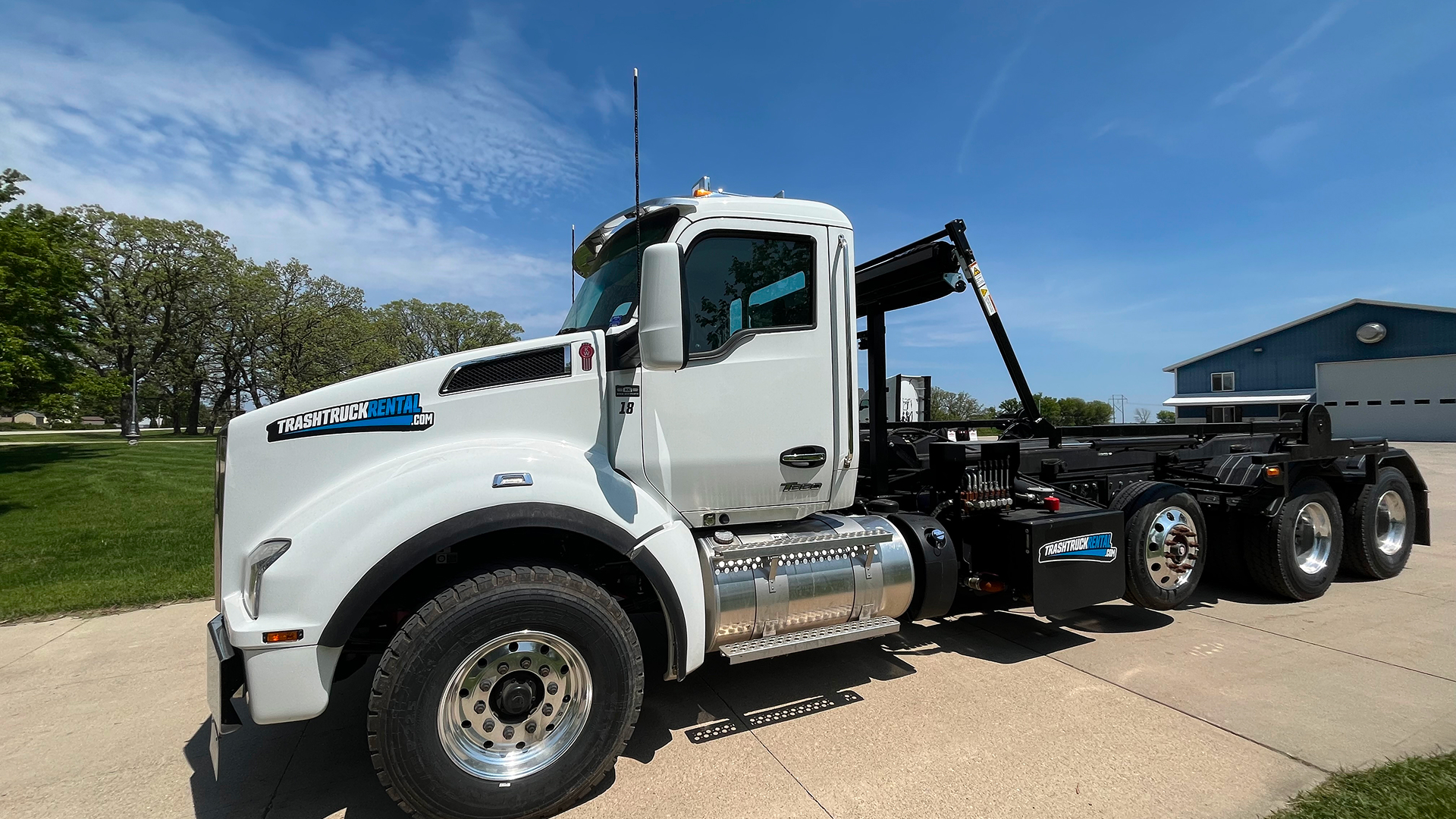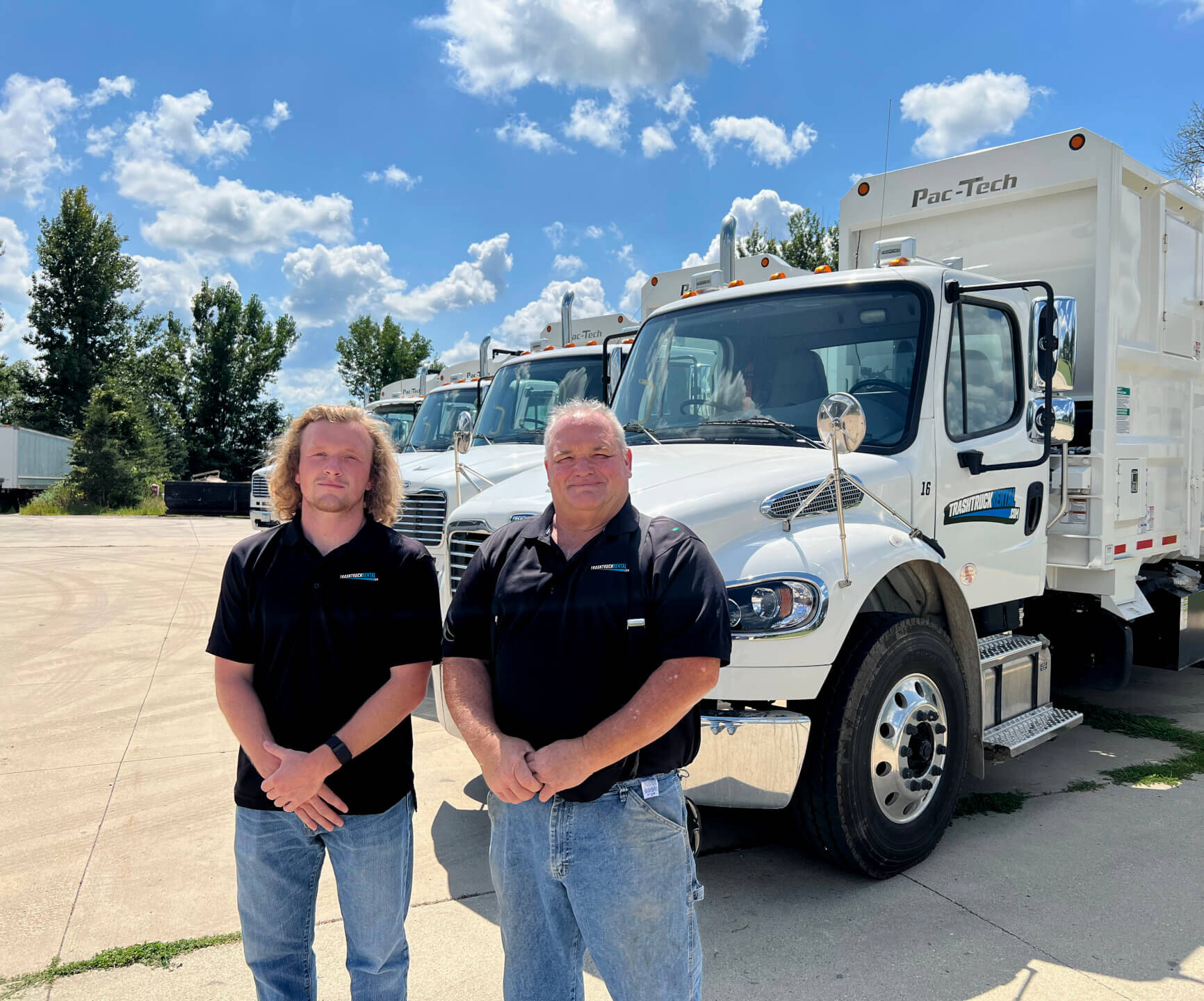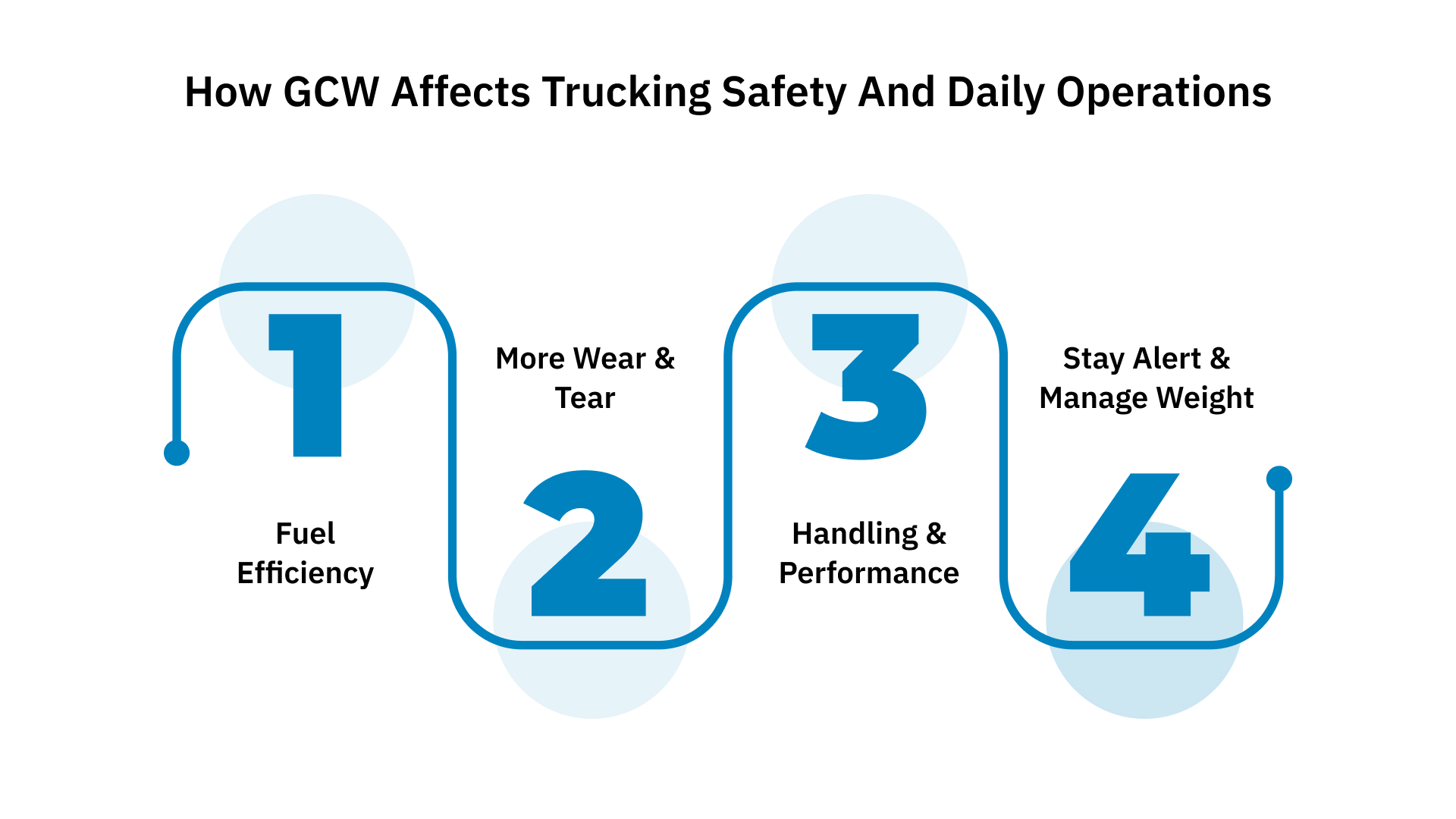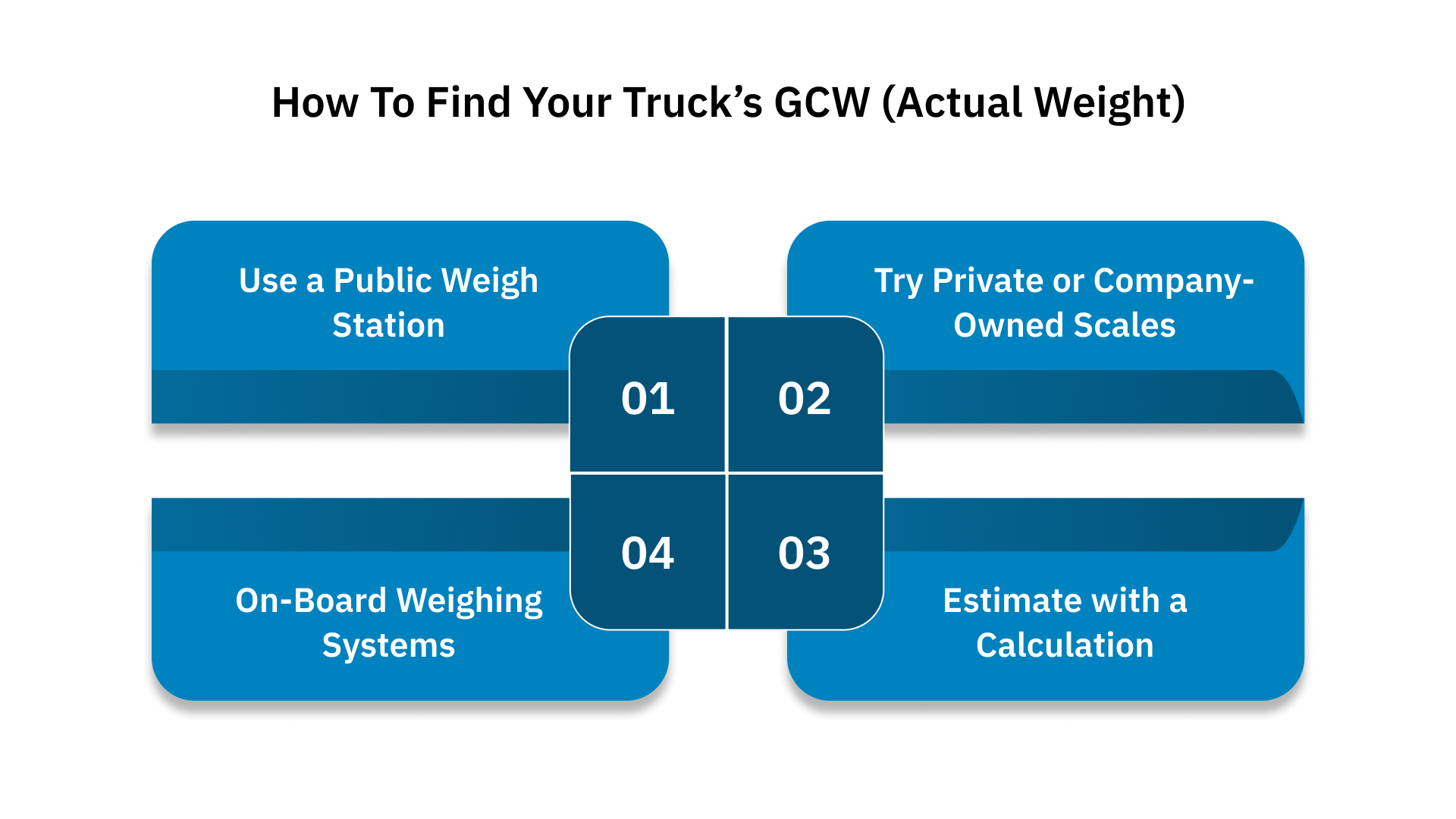GCW Meaning and Explanation for Trucks
Learn how truck weight ratings work and how to calculate them, with GCW explained clearly to help you stay safe, legal, and efficient in trucking operations.

Learn how truck weight ratings work and how to calculate them, with GCW explained clearly to help you stay safe, legal, and efficient in trucking operations.


Ever see a big truck pulling a heavy load and wonder how much it can handle? It’s not just the truck’s weight that matters; what it’s towing matters too. If you drive or manage trucks, knowing what Gross Combined Weight (GCW) means is essential.
In the U.S., staying within legal weight limits isn’t just about avoiding big fines; it’s key to keeping the roads safe. The Federal Highway Administration (FHWA) notes that excessive weight wears down roads more quickly and makes trucks harder to control, which can lead to serious accidents.
The rules may seem confusing at first, but understanding the GCW meaning is one of the first steps to staying safe and complying with the law.
When you talk about a truck’s weight limits, the term GCW meaning refers to the total weight of a fully loaded vehicle plus any trailers it’s towing. This includes:
GCW = Truck + Trailer + Everything Onboard.
Example:
Truck (with driver, fuel, and cargo) = 8,000 lbs
Trailer (with cargo) = 10,000 lbs
GCW = 8,000 + 10,000 = 18,000 lbs
This number is important because if you go over your vehicle’s allowed Gross Combination Weight Rating (GCWR), you can risk accidents, damage your vehicle, break the law, and face fines.
The GCWR represents the maximum allowable weight of the towing vehicle (like a truck) and its attached trailer(s) combined, including all cargo, passengers, fuel, and equipment on both the truck and the trailer(s). Think of it as the ultimate weight cap for the entire moving system when it's all hooked up and ready to roll.
Manufacturers calculate GCWR based on a complex evaluation of the vehicle’s design, including:
Exceeding the GCWR means you're putting a strain on these components that they were not designed to handle safely.
Now that you understand what GCW means, it's important to clarify how it differs from a similar-sounding term: GCWR. Though they’re closely related, the distinction plays a critical role in vehicle safety and compliance.
While we've explained GCWR (the rating), it's important to clarify its closely related term: GCW (Gross Combination Weight). This distinction is subtle but crucial for compliance and safety.
To further clarify, here’s a direct comparison:

The critical relationship: For safe and legal operation, your GCW (actual weight) must never exceed your GCWR (manufacturer’s rating). You need to know your truck’s GCWR, and you need to ensure that the actual weight of your loaded combination (GCW) stays below that limit.
Note: You can use a truck scale to get accurate weights. GCW should never exceed the GCWR set by the manufacturer. Always check the manual or door sticker for your GCWR limit.
Understanding the difference between GCW and GCWR sets the foundation, but there's another comparison that's just as important for fleet managers and operators:

It's easy to confuse GCW with Gross Vehicle Weight (GVW), but understanding the difference is crucial for ensuring safe and legal operation.
Gross Vehicle Weight refers to the total weight of the vehicle itself when fully loaded, including the weight of the fuel, driver, passengers, and any cargo inside the vehicle.
If you’re in a crash and your GVW or GCW is over the legal or rated limit, your insurance might deny coverage, leaving you responsible for all costs.
Knowing the difference between GCW and GVW sets the foundation. Now, let’s look at how GCW directly impacts trucking safety and day-to-day operations.

Your GCW isn’t just something to worry about at weigh stations. It impacts your truck’s safety, performance, and costs every time you hit the road. Every added pound, from cargo to fuel, can change how your vehicle behaves.
Here’s how your actual GCW (even if it’s within legal limits) plays a significant role in your daily driving:
The heavier your truck is, the more fuel it consumes. Your engine has to work harder to move the extra load, especially when climbing hills or trying to stay at highway speeds.
Even small weight increases can accumulate over time and significantly impact your fuel budget. Smart loading means carrying only what is needed without adding unnecessary weight, thereby saving fuel and money.
Even if you’re under the limit, a higher GCW puts extra pressure on your truck parts:
Your truck behaves differently based on how much it’s carrying:
Because your GCW keeps changing with each load, you’ve got to stay on top of it. Drivers and dispatchers must plan loads carefully, monitor weight distribution, and ensure the truck operates safely and efficiently.
When you manage GCW well, you help your truck perform better, last longer, and stay safer mile after mile.
Also Read: A Guide to Expanding Waste Management Services: Renting for Growth
Now that you know how GCW impacts operations, here's how to find your truck’s actual GCW.

Your GCW (Gross Combination Weight) isn’t a fixed number. It changes every time you add or remove cargo, fill up your tank, or have different passengers. Unlike GCWR (the manufacturer’s set limit), GCW is the real weight of your truck and trailer right now, and knowing it helps you stay safe and legal on the road.
Here are the best ways to find your actual GCW:
The most accurate way to check your GCW is to visit a certified public weigh station, usually found near highways, truck stops, or state checkpoints.
How it works: You drive your loaded truck and trailer onto the scale. It weighs each section (such as the front axle, rear axles, and trailer) and provides the total combined weight.
Some businesses like trucking hubs, landfills, quarries, or recycling centers have their own scales.
Good for frequent use: If you load or unload at these places often, it’s quick and easy to check your weight.
Important tip: Make sure the scale is certified and calibrated so your weight reading is correct, especially if you're using it for legal reasons.
Some modern trucks and trailers come with built-in systems that estimate weight using sensors in the suspension or frame.
Note: These systems are helpful but not as accurate as certified scales. Always double-check with a real scale if you're carrying a heavy or critical load, especially when crossing state lines.
You can also estimate your GCW using a formula. But remember, this method isn’t accurate enough for legal or safety checks.
Formula:
GCW = (Weight of truck + fuel + passengers + cargo in truck) + (Weight of trailer + cargo in trailer)
Why it’s tricky: You might not know the exact weight of your cargo or trailer, especially if you’ve made changes or added equipment.
Final Tip: For any serious haul or long trip, always use a certified scale to check your GCW. It’s the safest and most reliable way to avoid fines, breakdowns, and accidents.
Knowing your GCW is only part of the equation; you also need the right equipment to stay within limits. Trash Truck Rental provides GCWR-compliant trucks that help you stay safe, legal, and efficient on every route.
For fleet managers, operations directors, and business owners, managing the complexities of truck weight ratings is a constant responsibility. Ensuring your drivers understand GCW and consistently operate within limits is vital for both safety and your company’s reputation.
At Trash Truck Rental, we support both municipal and private waste haulers throughout the Midwest, including Minnesota, Wisconsin, and Iowa, with dependable garbage truck rentals and nationwide sales of trucks across all states of America. No matter where your operations take you, you’ll have access to safe, well-maintained, GCW and GCWR-compliant equipment that helps you run efficiently and responsibly.
Every truck we rent or sell reflects our goal of building cleaner, safer communities. By giving you the right tools to stay compliant and environmentally responsible, we’re helping you deliver essential services that protect public health and keep neighborhoods running smoothly.
Our rental fleet includes a variety of models such as automated side-loaders, rear-load trucks, and roll-off trucks, with flexible lease durations ranging from 28 days to 2 years to suit your operational needs. Whether you're looking for short-term rentals or fleet-ready used trucks, we ensure you have the right equipment to stay on schedule and within legal requirements.
Also Read: The Benefits of Renting a Garbage Truck for Fleet Maintenance and Management
Understanding GCW (Gross Combination Weight) isn't just a technical detail—it's a daily necessity for safe, legal, and efficient trucking operations. Whether you're a driver, dispatcher, or fleet manager, knowing your actual GCW and staying within the manufacturer's GCWR helps prevent costly breakdowns, avoid fines, and protect the safety of everyone on the road.
By managing GCW properly, you extend the life of your vehicles, improve fuel efficiency, and ensure your team can get the job done without unnecessary delays or risks.
At Trash Truck Rental, we understand the importance of weight compliance in waste hauling and commercial trucking. That's why we offer equipment that's not only reliable but also aligned with the safety and compliance standards you count on. Whether you're looking for short-term solutions or long-term growth, we're here to support your operation with trucks that meet GCW and GCWR guidelines, allowing you to stay focused on delivering essential services.
Need a compliant, dependable truck for your next job? Contact Trash Truck Rental to explore rental options tailored to your needs. We're here to help keep your routes running smoothly.
A: Knowing the difference between GCW (actual weight) and GCWR (maximum rating) is crucial for both. For route planning, it helps you assign the right truck for specific loads and terrain, avoiding overloaded vehicles. For driver training, it empowers drivers to properly load trucks, monitor weight distribution, and understand the critical safety implications of operating within limits, reducing accident risks and fines.
A: Operating a truck combination that exceeds its GCWR can have severe consequences. In the event of an accident, it can not only lead to significant fines and penalties but may also void your insurance coverage, leaving your company financially exposed to substantial legal liabilities and damages. Compliance is key to protecting your business.
A: The most critical factor is the GCWR of the towing vehicle (the truck). This rating directly determines the maximum combined weight your entire rig (truck + trailer + load) can safely handle. You need to ensure the truck's GCWR is sufficient for your heaviest anticipated loads and the trailers you'll pair with it, not just the individual GVWRs.
A: While certified weigh stations are the most accurate, drivers can use on-board weighing systems (if equipped on the truck or trailer) for real-time estimates. They should also be rigorously trained in load estimation based on cargo density and volume, and understand the empty (curb) weights of their trucks and common trailers to get a reasonably accurate calculated GCW before leaving the yard.
A: We provide well-maintained, compliant trucks for both rental and purchase, ensuring the equipment itself meets safety and rating standards. This helps you avoid the risks of an aging, non-compliant fleet. Our flexible rental options also allow you to quickly scale up with appropriate vehicles for heavier or fluctuating loads without long-term capital commitment, directly supporting your operational needs and compliance efforts.
Ready to Upgrade Your Process Operations?